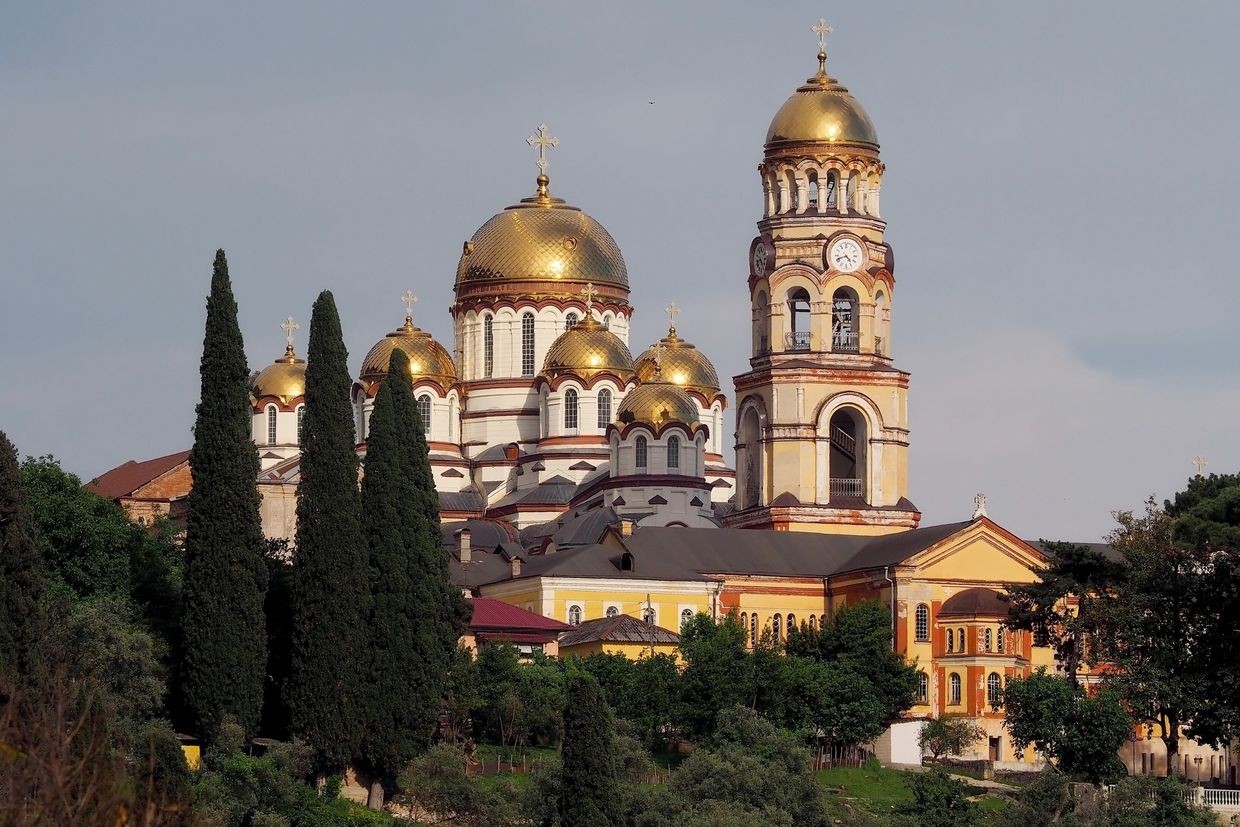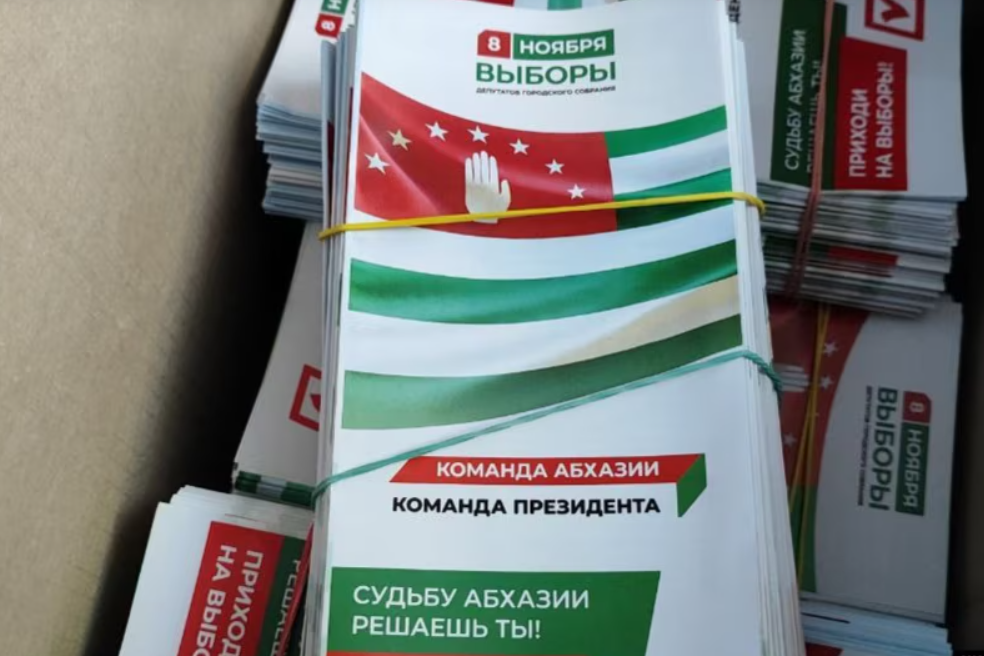
The Abkhazian Orthodox Church has suspended all church services other than in the Sukhumi (Sukhum) Cathedral, demanding the government take action against the rebel priest in control of the New Athos Monastery.
In a statement on Telegram on Monday, the Church called on the authorities to ‘carefully consider what is happening, conduct a thorough examination of the situation, and make balanced decisions aimed at preserving calm, unity, and ecclesiastical truth’.
‘Until the above-mentioned ecclesiastical issues are resolved, the Church Council and clergy of the Abkhazian Orthodox Church have decided that divine services will be conducted only in the Cathedral of the Annunciation of the Most Holy Theotokos in Sukhumi (Sukhum)’, the statement read.
The Church suspended services over an ongoing conflict between the Abkhazian Orthodox Church and the Holy Metropolis of Abkhazia, a dissident movement that emerged in the New Athos Monastery in 2011.
In their statement on Monday, the Church called for the monastery — Abkhazia’s largest Orthodox site — to be returned to its control, and for the ‘treacherous monk Dorotheos (Dbar)’, who leads the dissident movement, to be evicted.
‘In the current situation surrounding church life in New Athos, we appeal to you with a prayerful request for assistance, a careful study of the situation, and the protection of the truth. We consider it important that state bodies take a position conducive to the preservation of peace, unity, and church order’, the statement read.
‘Without the blessing of the Abkhazian Orthodox Church, no one has the right to conduct religious services on its territory’, the statement read. ‘According to the rules of the Orthodox Church, such actions are considered a rebellion against church order.’
They said their goal was to prevent confrontation between Orthodox Christians and therefore appealed ‘to everyone — the Moscow Patriarchate, the Abkhazian authorities, and the Orthodox people of Abkhazia — to hear us and assist in the restoration of ecclesiastical order’.
At the heart of the schism is differing opinions over how to achieve independence for the Abkhazian Orthodox Church from the Georgian Orthodox Church, and the extent to which the Church should look to Moscow.
The Abkhazian Orthodox Church declared independence from the Georgian Orthodox Church in 2009. However, no other Orthodox Church — including the Russian Church — has recognised this decision.
The Abkhazian Orthodox Church under Father Vissarion (Aplia) has argued that the Church should defer to the Moscow Patriarch for religious decisions, and to push for recognition through them.
In contrast, Dorotheos has argued that the Church should appeal directly to the Ecumenical Patriarch of Constantinople.
The schism first began in May 2011, when approximately 2,000 parishioners at the monastery in New Athos voted to proclaim the Holy Metropolis of Anakopia and New Athos, with the plan to establish the Autocephalous Church of Abkhazia, headed by Dorotheos, as its Metropolitan.
The vote took place despite warnings from the diocesan assemblies of the Abkhazian and Russian Orthodox Churches, as well as from the Abkhazian authorities.
Opponents labelled the meeting in New Athos ‘canonical outrage’, while Dorotheos stated that only ‘prison or physical elimination’ would stop him.
Since then, Dorotheos has continued to give services at the New Athos monastery, gaining a significant following.
The Abkhazian Orthodox Church has repeatedly appealed to him to renounce his activities. Most recently, in June, Vissarion issued an ultimatum signed by 18 clergy members including a prominent former ally of Dorotheos — demanding that he vacate the New Athos Monastery.
Dorotheos responded that he would not ‘give in to petty provocations’.
‘Regardless of the circumstances, I continue on my path, and as long as I live, I will not abandon my flock. I will defend the interests of the Abkhazian Church with all my strength, no matter the cost. In the end, history will judge us all!’.
For ease of reading, we choose not to use qualifiers such as ‘de facto’, ‘unrecognised’, or ‘partially recognised’ when discussing institutions or political positions within Abkhazia, Nagorno-Karabakh, and South Ossetia. This does not imply a position on their status.

This article was translated into Georgian and republished by our partner On.ge.










